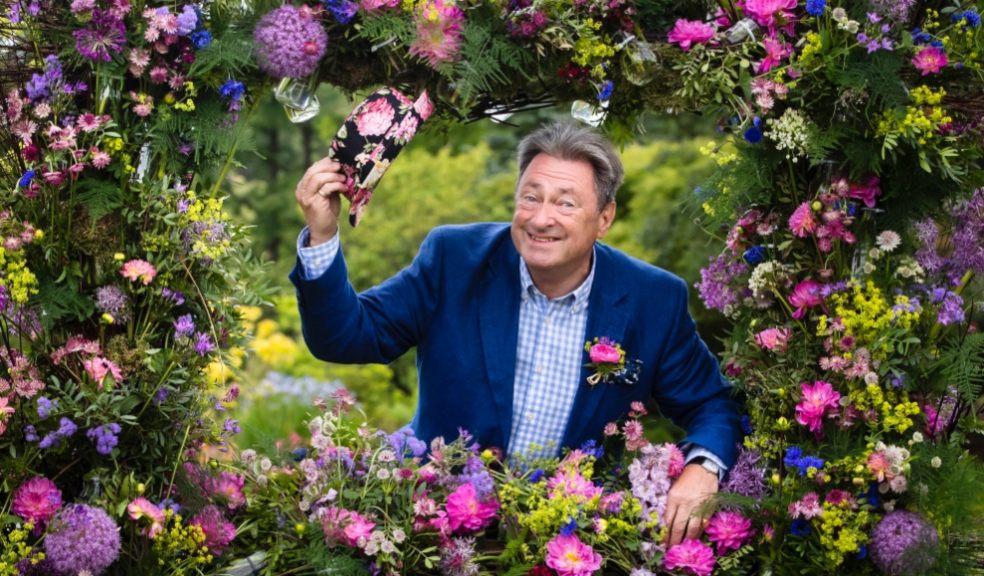
Alan Titchmarsh: Keep getting out there and keep getting mucky
Self-confessed romantic and gardening expert Alan Titchmarsh has combined his horticultural passion with his love of words in Marigolds, Myrtle And Moles, his first book of poetry aimed at the green-fingered.
Written mainly in a barn next to his house, overlooking his garden in Hampshire, the book is not full of pretentious prose, but more his own gentle, meandering thoughts about various aspects of gardening. There are poems about his favourite plants, garden pests, snobbery in horticulture, technology and wry jibes about attitudes to the outdoors today.
“Poetry is a wonderful, concise way of getting your point across, whether it’s just to make people laugh or to make a wider point,” he says.
Here are some of his musings, reflected in his poetry…
On technology
“It’s like fire – a good slave and a bad master. When technology can help you along, use it, but my knowledge of technology is limited. I love using my laptop as it’s made editing better and put Tippex out of work.
“The worry is, it has put lots of people out of touch with reality, which is hands in the soil. Once you start to live life vicariously on the screen, you become fearful of the outdoors and the natural world suffers as a result, because you don’t quite know how it works.
“The solution is, keep getting out there and keep getting mucky. Make time to sit amongst it, look and listen and be of it, not just in it.”
On people caring too little about the environment
“People are disconnected, generally, unless they work on the land or use their free time to get on the land.
“We’ve lost rural studies in schools, the curriculum has changed so much and with it this connection with the outdoors and the ability to grow plants.
“This education needs to start early. Kids will go away in their teens because that’s just nature, but they’ll come back and they won’t be fearful of it. You want people to love the outdoors, and that connection starts with childhood.”
On snobbery in gardening
“Occasionally it drifts through in conversation with people: ‘Oh we have this lovely lady who designed this most wonderful small garden and she didn’t cost very much, just a few thousand pounds’. I just bite my lip and smile.
“Or people go on a course once a week for a year and come out as a fully fledged garden designer,” he mocks. “I’m all for anybody who wants to get involved in gardening going on a course, but there’s a lot of learning needed to design gardens.
“It’s like saying, ‘I’m going to be a painter’, without knowing anything about paint. The intention is good but the execution is often sadly lacking.”
“Everybody wants to be a garden designer,” he laments. “Well, why don’t you just be a gardener first?”
On garden pests
He writes about slugs, snails, wasps and other critters. “One of the worst pests in my garden is that nasty little vine weevil which eats all the roots of your plant. I like hostas – and we get loads of snails. But it’s all part of it. If there’s a hole in your hosta leaf, just move your deck chair a bit further away.”
On snowdrops, sweet peas and peonies
“It’s seasonality. The most glorious thing about gardening in this country is that the snowdrops emerge, then the daffs come out, then it will be sweet peas and peonies and then roses. The fact we get this ever-changing tapestry of plants, rather than in the tropics where it’s bougainvillea, hibiscus and oleander every day of the year, is wonderful.”
He’s been quite vocal about the importance of seasonality and eating produce that’s in season. “You can’t slag off the royal family and celebrities for flying off in private jets if you’re buying strawberries in January and February, because they have been flown to you as well. We can make a difference.”
On his hopes for the future
One particular friend is an environmental activist who tells Titchmarsh his passion for tree-planting and encouraging others to cherish their patch of land is a waste of time and that it comes too late.
He argues: “We have the opportunity not to be doomed if we take care of it. Let’s get on. I’ve been manning the hose pipes for 50 years. If you do your bit outside the back door, it joins up like a patchwork quilt with everybody else’s.
“We need to get governments not just to listen, but to act. But if we all do something as individuals, it contributes to that. Not enough is made of individual responsibility.
“I do have hope, because nature offers you hope. Wildlife and plants are opportunists and if you give them an inch to colonise somewhere, they will. If we stopped using our motorways, within two years you wouldn’t be able to see them. They’d be broken up and colonised by plants. Seeds would fall in crevices, roots would push up tarmac and concrete. Plants are incredibly powerful things.”
Marigolds, Myrtle And Moles by Alan Titchmarsh is published by Hodder & Stoughton, priced £12.99. Available March 5.
Picture: Alan Titchmarsh (Dominic Lawson/PA)













